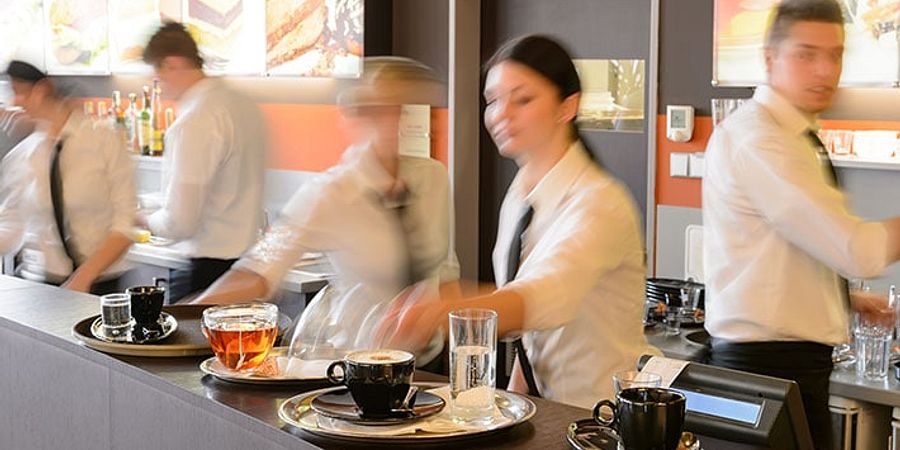Improving Wait Staff Productivity: Restaurant Management Tips

In the major leagues, managing a baseball team is all about placing each player in a position to maximize his individual performance and combine each player to make an effective team. Managing a restaurant is very similar but without the cleats.
St. Louis Cardinals manager Tony LaRussa shuffles his players and places them in different positions with the understanding that each of his players remains fresh and ready for any position anytime, anywhere. Another manager, Bobby Cox, spent up to two hours tweaking a lineup that he developed the previous day. Training, coaching, and placing players on the ball field is very similar to the process that is used by restaurant managers staffing a restaurant. Methods may vary, but in order to have a productive wait staff, it requires strategic thinking, motivation, training, and that little extra personal touch. Let's look at some wait staff productivity tips:
Improving Wait Staff Productivity through Strategic Scheduling
Most managers make the staff schedule based on who is available. They use a spreadsheet to block out the shifts that team members cannot work and then fill in the remaining slots with whoever is left. Imagine if a baseball lineup was first come first serve, or if the NFL draft was just names drawn out of a hat. Strategic scheduling will increase productivity if managers allow skills to dictate the schedule rather than tenure or availability. Schedule the top performers during peak volume periods. These shifts bring in more revenue so select those who know the menu and provide superior service. This is also an effective way to communicate with your staff whether they are doing a good job, or if they have room to improve.
Team Work vs. Group Work
People often confuse a group of people working together with an effective team. Group work is several individuals working independently on their assigned tasks. Teamwork takes that same group of people and puts them working towards a common goal. In a restaurant, group work is ineffective because no one is working together. Teamwork between the servers, kitchen, host, and bussers is imperative and essential to increase sales and customer satisfaction. A good team works together when things get difficult and lifts each other up along the way, it is much more than a group of people working together.
Melodrama Management
Lady Gaga, Jennifer Aniston, Kathy Bates, and Russell Crowe all have one thing in common: they started out as wait staff. Hundreds of actors and actresses started out as servers and even if your staff isn't headed to Hollywood, big personalities can make for melodrama in the kitchen. The drama between staffers is perhaps the most difficult situation to solve. It all revolved around setting standards. Instigate a team environment with crew meetings to review, remind, and reinforce standards and expectations. Show them the priorities without beating them down. Stay upbeat, communicate clearly the consequences of unprofessional behavior, and be prepared to follow through.
Sharing is Caring
Be involved in your staff. Maintain a relationship with each one, and always be motivating and encouraging. Never walk past your workers without some type of positive interaction. Be fair and loyal, careful not to favor one staffer over another. Contests and incentive programs are great ways to motivate sales. Giving twenty bucks to whoever sells the most appetizers will pay for itself over and over when you see an increase in sales. Reward servers who attend staff meetings by providing them with a meal of a new, seasonal, or special item on the menu. A server who has just devoured your nightly special is full, happy, and more likely to suggest items to customers that they have tasted.
Your servers can literally make you or break you. When the success of your restaurant lies in the hands of your staff, you must ensure that attentive, courteous service is given to each customer. Service should be as important, if not more important than food. Over 70% of customers return to a restaurant because of great service. Even the best menu will not make up for poor staff and a negative review. Teach them to work smarter, not harder with ongoing sales training, confidence boosts, and enthusiasm.
Have other wait staff productivity tips? Share them in the comments section below.
Share This!